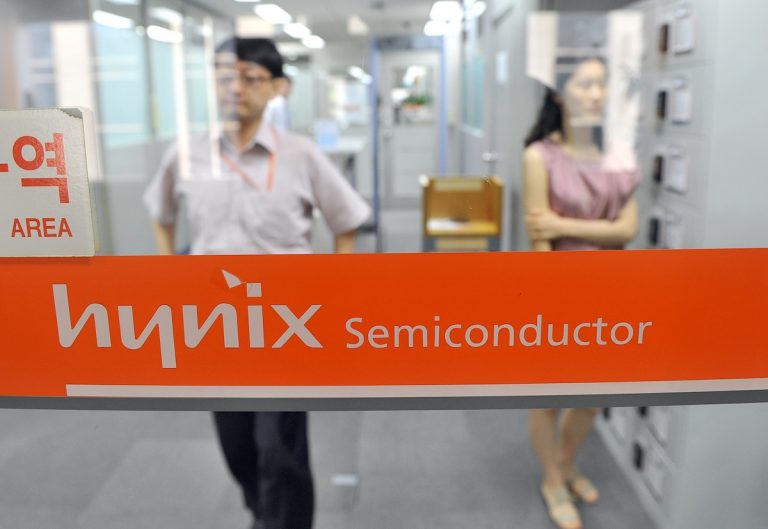On May 21, President Joe Biden and South Korean President Moon Jae-in issued a joint statement, in which both leaders reaffirmed their “mutual commitment” to cooperate in various fields such as global health and technology while also building “supply chain resilience.” The statement was issued as part of the U.S.-South Korea summit, which was attended by several corporations from the Asian nation.
“We agree to cooperate to increase resiliency in our supply chains, including in priority sectors such as semiconductors, eco-friendly EV [electric vehicle] batteries, strategic and critical materials, and pharmaceuticals. We also agree to work together to increase the global supply of legacy chips for automobiles, and to support leading-edge semiconductor manufacturing in both countries,” according to the joint statement.
The Fact Sheet published by the White House states that areas of cooperation in the tech supply chain include:
- Creating a U.S.-ROK (South Korea) Supply Chain Task Force to “implement and review bilateral cooperation” in the field of high-tech manufacturing and supply chains.
- “Mutual and complementary investments” in semiconductors, high-capacity batteries, and auto-grade chips, including across the entire supply chain of the materials, parts, and equipment needed to manufacture these products.
- Joint research and development (R&D) in next-generation 6G, artificial intelligence (AI), biotechnology, and quantum technology.
- Securing 5G and 6G networks. The U.S. has committed $2.5 billion to R&D investments in this sector, and the two nations will work together on Open Radio Access Network (O-RAN) technology development and standardization.
- U.S. support for South Korea’s development of its own navigation system, the Koran Positioning System, and interoperability with America’s Global Positioning System (GPS).
- Promoting coordination in the supply chain of overseas nuclear markets.
Moon’s entourage included top business executives from the country who announced their U.S. investment plans at the summit. The top two battery suppliers in Korea, SK Innovation and LG Energy Solution, will be investing about 14 billion dollars in separate and joint projects.
Hyundai Motor committed 7.4 billion dollars to expand the production of electric vehicles and recharging infrastructure in America. Chipmaker SK Hynix will spend one billion dollars to build a large-scale R&D center in Silicon Valley focused on AI and NAND solutions.
Success
You are now signed up for our newsletter
Success
Check your email to complete sign up
Samsung announced a 17 billion dollar investment in a chip foundry plant in Austin, Texas, which is slated for completion by 2024. Equipped with an advanced 5-nanometer chip manufacturing technology process, the plant will boost chip production in the United States and help to prevent a repeat of the current chip shortage issue.
Taiwan partnerships
The U.S. is also developing strong economic ties with Taiwan. On May 20, U.S. Secretary of Commerce Gina M. Raimondo participated in a semiconductor virtual summit that included Taiwanese company TSMC, the world’s largest dedicated independent semiconductor foundry.
In May 2020, TSMC announced that it would be investing 12 billion dollars to build a factory in Phoenix, Arizona. The location will use the company’s 5-nanometer semiconductor manufacturing technology to produce chips beginning in 2024.
Taipei Times reported that TSMC also plans to manufacture next-generation 2-nanometer and smaller chips at the Phoenix facility. A 3-nanometer production facility is being discussed as well, which would entail an additional investment of 23 to 25 billion dollars.
Decoupling from China
In an interview with The Epoch Times, Hong Kong financial analyst Katherine Jiang Tianming stated that America has been leading the decoupling of global supply chains from China and strengthening U.S. supply chains with South Korea and Taiwan.
The U.S. is also taking regulatory measures towards Chinese decoupling, including:
- A May 15, 2019 executive order from then-President Donald Trump calling for all information and communications technology and services supply chains in the country be secured. It barred American companies from using telecommunication equipment deemed to be a threat to national security.
The order eventually led to Chinese tech firm Huawei being excluded from the American telecommunication supply chain. In March this year, the Biden administration further restricted American companies from supplying components to Huawei.
- On April 21, 2021, the Senate Foreign Relations Committee passed the Strategic Competition Act of 2021 (S.1169) by 21 to 1 vote.
One of the focus areas of the bill is to expand the scope of the Committee on Foreign Investment in the United States (CFIUS), an organization that scrutinizes financial transactions to identify threats to national security. The law would bring American universities receiving Chinese grants and contracts under scrutiny, Reuters reported.
- On May 12, 2021, the Senate passed the Endless Frontier Act bill aimed at boosting U.S investments in technology to compete with China. Over a five-year period, 100 billion dollars will be dedicated towards advanced research projects and 10 billion dollars will be spent on setting up countrywide technology hubs.
According to Tianming, the legislation passed in the last couple of years constitutes a regulatory and legal mechanism for America to decouple from China. As South Korea’s ties with the United States deepen, it will also likely gradually decouple from China.














